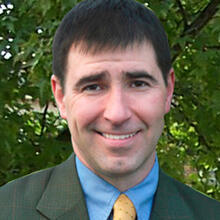Pope Francis’s address to Congress is the topic of much anticipation and speculation because it is an unavoidably political event. As I talk to reporters, the questions always come around to the likely partisan impact of Francis’ speech. “Granted Francis is prolife and supports traditional marriage, but won’t his concern with the environment, economic justice and immigration be more challenging to Republican’s than Democrats?” There is some truth to this story line, but such issue accounting misses the true nature of Francis’s challenge--including his most profound political challenge.
It is a commonplace to say that Francis will speak as a Pope, not as a politician or pundit. This does not, however, mean his speech won’t pack a political wallop. Since the first moments of his papacy, Francis has practiced prophetic politics not with angry denunciations, but with unsettling questions about mercy. Mercy is central to his mission. It was part of his motto as bishop. He has declared the coming year a “Jubilee of Mercy.”
Mercy sounds like a soft virtue—Kumbaya and hugs for everyone. But it’s firmly at the heart of Francis’ prophetic challenge (not to mention his enormous popularity). Francis preaches God’s mercy and from that place of mercy asks a spiritual question that disrupts easy political dismissals: Can you open your hearts, your eyes, your mind, to the suffering in the world around you as God does? Will you change to respond to it?
Mercy is a more than a moral call for responsibility, it is a radical form of politics. Mercy has its own logic and mode of proceeding. This was evident in Francis’s first trip outside of the Vatican to the island of Lampedusa, where so many migrants have died. There, Francis posed a prophetic challenge. It was not, however, simply a moral challenge to take the plight of migrants seriously, but a spiritual challenge to open ourselves to their suffering.
Francis voiced God’s question to Cain:
“‘Where is your brother?’ His blood cries out to me, says the Lord. This is not a question directed to others; it is a question directed to me, to you, to each of us.”
Here he coined the term the “globalization of indifference.” Against it, he proposed not simply moral obligation, but spiritual compassion.
Let us ask the Lord for the grace to weep over our indifference, to weep over the cruelty of our world, of our own hearts, and of all those who in anonymity make social and economic decisions which open the door to tragic situations like this. "Has any one wept?" Today has anyone wept in our world?
In Misericordia Vultus, Francis describes mercy as going beyond the requirements of justice to follow in Jesus’ footsteps of sharing meals with sinners and intimacy with those who are suffering. For Pope Francis, opening the heart is the path to moral action.
This question of mercy is at the spiritual and political core of Laudato Si’:
“Our goal is not to amass information or to satisfy curiosity, but rather to become painfully aware, to dare to turn what is happening to the world into our own personal suffering and thus to discover what each of us can do about it.
This question cuts through the easy political posturing that honors Francis as a spiritual leader but dismisses his intervention into economic and environmental questions as naïve or inappropriate politicking.
Francis is speaking as a religious leader asking a demanding spiritual question: Will you open your heart and mind to the suffering around you? Or will you hide behind your ideologies of market freedom and personal choice, refusing to look at the faces of the outcast and discarded, the despoiled landscapes, and the science that tells us of the peril we are leaving our children to face?
To refuse that challenge, is to close one’s heart and in another favorite phrase of Francis’s, to make the “dangerous” turn from reality, to abstract ideas “bereft of kindness…and wisdom.”
This message lands hard in our nation at the very dangerous moment when calling immigrants “rapists” can make one a front runner in a presidential primary. Our politics desperate need disrupting.
The politics of mercy bring a hopeful new dimension of response to the overwhelming challenge posed by the unfolding climate crises. To understand what is happening we have to open our eyes to things easily hidden from us. We have to see the connections between phenomena that are easily ignored. Above all we have to open our hearts to the countless creatures being made extinct and to grandchildren and great grandchildren whom we may never see in order to shoulder the epochal task of changing our civilization’s use of carbon fuels and other resources. We have never cooperated together on so large a task before. We need God’s help. Francis message points to a place to begin – open your heart.







